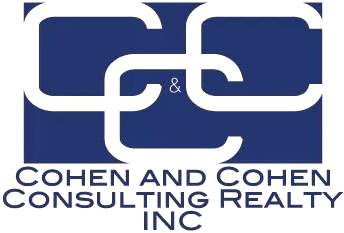Selling a home involves more than finding a buyer and agreeing on a price. As the deal approaches the final stages, sellers must cover various closing costs, which ensure the transaction is legally, financially, and administratively complete. These expenses cover everything from agent commissions to taxes, title services, and more. Understanding what these fees entail allows sellers to budget correctly, negotiate wisely, and prevent delays during closing. The total amount can vary based on property location, sale price, and regional regulations, but knowing what to expect provides peace of mind throughout the process.

Real Estate Agent Commissions
Agent commissions often represent the largest component of closing costs for sellers. These fees generally total between 5% and 6% of the sale price and are shared between the listing agent and the buyer’s agent. Even though commissions are technically negotiable, most agents adhere to local standards, which reflect the market and the level of service provided. This amount is deducted from the proceeds of the sale at closing, which means sellers do not need to pay these fees upfront.
In some situations, a dual-agency arrangement occurs, where one agent represents both the seller and the buyer. While dual agency might lower the total commission slightly, sellers should evaluate the potential trade-offs in representation. A skilled agent can help secure the best possible sale price through effective pricing, marketing, and negotiation, potentially offsetting the impact of the commission. For many sellers, the benefits of working with a professional outweigh the expense, as experienced agents often facilitate quicker sales and higher offers.
Title Insurance and Escrow Fees
Title insurance and escrow services play a key role in ensuring that the property transfer is legally sound and that no unresolved ownership issues arise after closing. In most areas, the seller pays for the buyer’s title insurance policy, which protects the new owner against legal disputes, such as undisclosed liens or prior ownership claims. Title insurance costs vary but generally range from a few hundred to several thousand dollars, depending on the property value and local market. Offering title insurance helps reassure buyers that the transaction is risk-free and smooth.
Escrow companies act as neutral third parties, managing the transfer of funds, documents, and property ownership to ensure both parties fulfill their contractual obligations. Escrow fees are typically shared between the buyer and seller, with each side contributing roughly half the total cost. Escrow services prevent disputes by verifying that all required steps are completed, including the settlement of taxes, mortgages, and utility payments. Depending on the complexity of the transaction, escrow fees can vary, but they are an essential part of completing the sale correctly and efficiently.
Prorated Property Taxes and Utility Adjustments
Sellers are responsible for paying their share of property taxes and other ongoing costs up to the date the property officially changes hands. Because taxes are usually assessed on a yearly or semi-annual basis, they need to be prorated at closing to reflect the exact number of days the seller owned the property during the current billing period. If the seller has already paid taxes for the full period, they may receive a credit from the buyer for the unused portion. On the other hand, if taxes are still due, the seller’s share will be deducted from their proceeds.
Utility costs follow a similar structure. Sellers must settle any utility bills—such as water, electricity, and gas—up to the day of closing. This ensures that buyers are not held responsible for services they didn’t use. These prorated adjustments will appear on the final settlement statement, which outlines the exact amount each party owes. Sellers should also notify their utility providers about the sale and arrange final readings to prevent billing errors. Handling these details in advance avoids delays and ensures the transfer process is seamless.
Transfer Taxes, Recording Fees, and HOA Costs
Transfer taxes are imposed by state or local governments whenever a property changes hands. These taxes are usually calculated as a percentage of the final sale price, though the exact amount varies significantly between states and municipalities. In some areas, the cost of transfer taxes is shared between the buyer and seller, but in most cases, the seller covers this fee entirely. Transfer taxes can range from a few hundred dollars to several thousand, depending on the home’s value and the local tax rate.
Recording fees are another important component of closing costs. These fees ensure that the sale and title transfer are properly documented in public records. While the amounts may seem small in comparison to other fees, they are essential to making the transaction legally binding. Sellers who belong to homeowner associations (HOAs) may also face transfer fees charged by the HOA to update ownership records. Additionally, any unpaid HOA dues or special assessments must be settled before the sale is completed, as they can delay closing if left unresolved.
Repairs, Home Warranties, and Seller Concessions
During the home inspection process, buyers often request repairs for issues identified in the report. Sellers must decide whether to address these repairs directly or offer a credit at closing to cover the estimated cost. Completing repairs before closing can make the property more appealing to buyers, but offering credits is often faster and more convenient. Either option will impact the seller’s net proceeds, so it’s wise to anticipate potential repairs early in the process.
Many sellers also choose to offer home warranties to buyers as an added incentive. A home warranty typically covers major appliances and systems for the first year of ownership, giving buyers peace of mind. These policies cost a few hundred dollars and can make a property stand out in competitive markets. Including a home warranty might also help sellers avoid post-sale disputes over the condition of appliances or systems.
In some cases, sellers may offer concessions to help buyers with their own closing costs. Concessions can include covering loan origination fees, appraisal costs, or other expenses buyers face. These incentives are particularly helpful when working with first-time buyers or in slower markets, where sellers may need to sweeten the deal to attract offers. However, concessions should be carefully considered, as they reduce the seller’s bottom line.
Pricing Your Home to Ensure Financial Success
Setting the right price for your home is essential for achieving a smooth and profitable sale. Beyond reflecting market trends and comparable properties, your asking price should account for the expenses involved in selling to ensure your net proceeds align with your financial goals. Proper pricing helps you attract serious buyers, minimize time on the market, and avoid renegotiations that could complicate the transaction.
Overpricing a home can cause it to linger on the market, making buyers suspicious or hesitant. On the other hand, underpricing may generate quick interest but leave you short on proceeds once everything is settled. A well-balanced price attracts strong offers while giving you the flexibility to handle buyer requests, such as minor repairs or credits, without compromising your bottom line. Sellers who plan for these possibilities can negotiate confidently and avoid making last-minute concessions.
Strategic pricing also strengthens your negotiating position. Homes priced fairly from the start show buyers that you are serious about selling, encouraging high-quality offers and timely decisions. A property with an appropriate price is less likely to require reductions, which can give the impression of desperation and weaken your leverage during negotiations.
Ultimately, pricing your home thoughtfully ensures a smoother experience from start to finish. It aligns your expectations with market realities, reduces the chance of prolonged market exposure, and positions you for a successful sale. With a realistic price, you’ll be better prepared to meet financial obligations and walk away from the closing table with the proceeds you anticipate.
Ready to Sell? Contact Me Today for Expert Guidance
Selling a home involves various closing costs, from agent commissions and taxes to title services, escrow fees, and potential repairs. Understanding these costs ensures that you are fully prepared for each stage of the transaction and helps you avoid last-minute surprises. Careful planning not only ensures a smoother closing process but also helps you maximize your final proceeds. If you are thinking about selling your home, now is the perfect time to take action. Contact me today for expert advice, and together, we’ll ensure your home sells quickly and for the best possible price.


